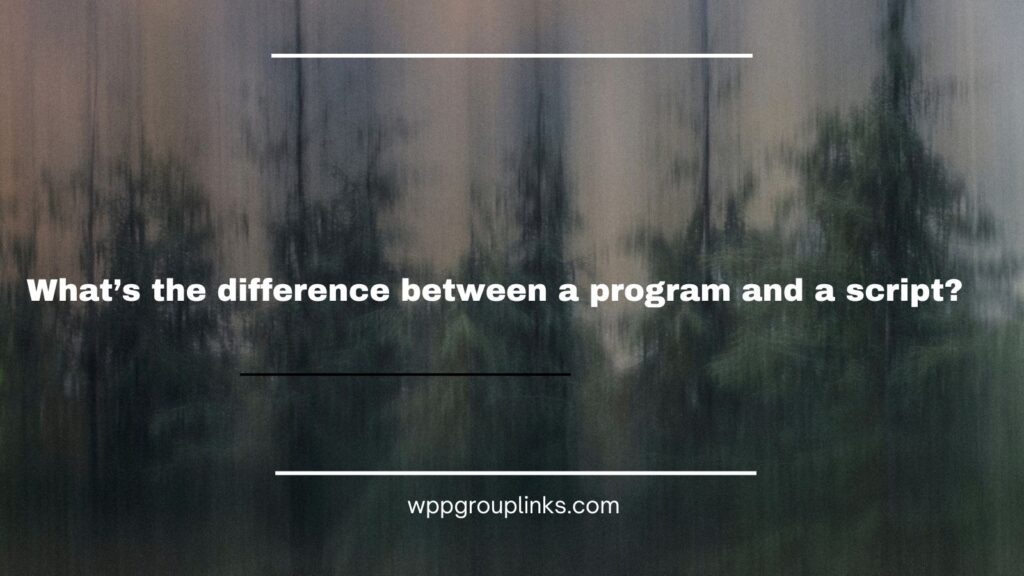
Q: What’s the difference between a program and a script?
or
Q: What distinguishes a script from a program?
- There’s not much difference, but scripts are usually simpler and shorter.
- Scripts are only written in Python.
- Scripts can only be used for simple tasks.
- Programs are written by software engineers; scripts are written by system administrators.
Explanation: There is a difference that should be made, even though the words “program” and “script” are often used interchangeably with one another.
A collection of instructions or code that is developed to do a particular job on a computer is referred to as a program. It is a more general phrase that refers to a wide variety of software, such as applications, system software, and utilities. It covers all of these categories. Before being run, programs are often converted into machine code or intermediate code. Compilation occurs before execution.
On the other hand, a script is a kind of computer program that is interpreted rather than compiled. Scripts are often used in web-based applications. Scripts are often created in scripting languages such as Ruby, Python, or JavaScript. They are often used to automate processes, carry out duties related to system management, or extend functionality to other applications. Scripts are often understandable by humans and may be modified on the fly, eliminating the need for a separate process to compile the changes.
To reduce it down to its most fundamental level, every program is a script, but not every script is a program. The difference is in the manner in which they are carried out, namely, either via compilation or interpretation.





